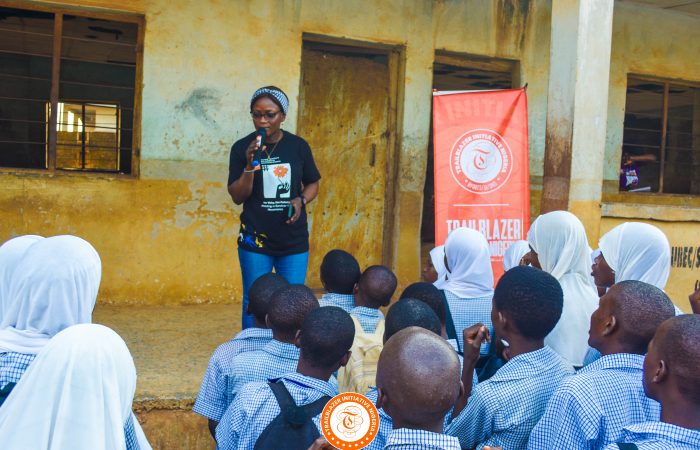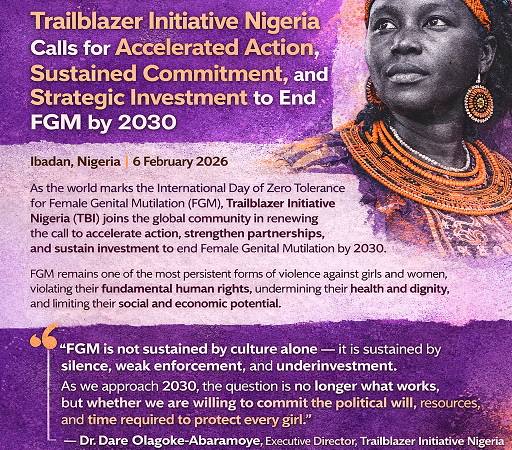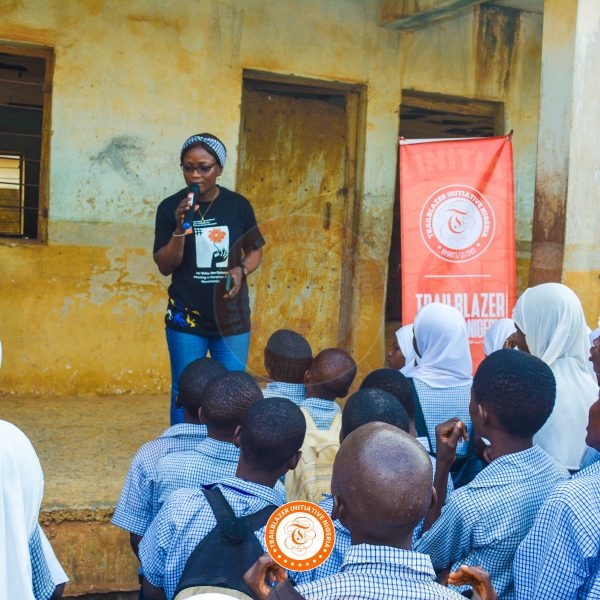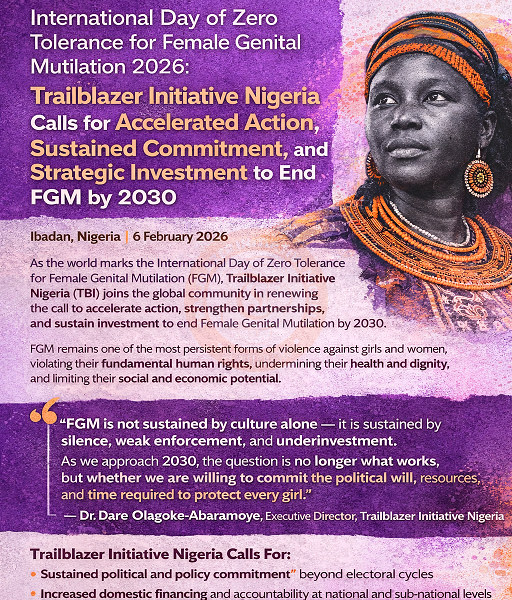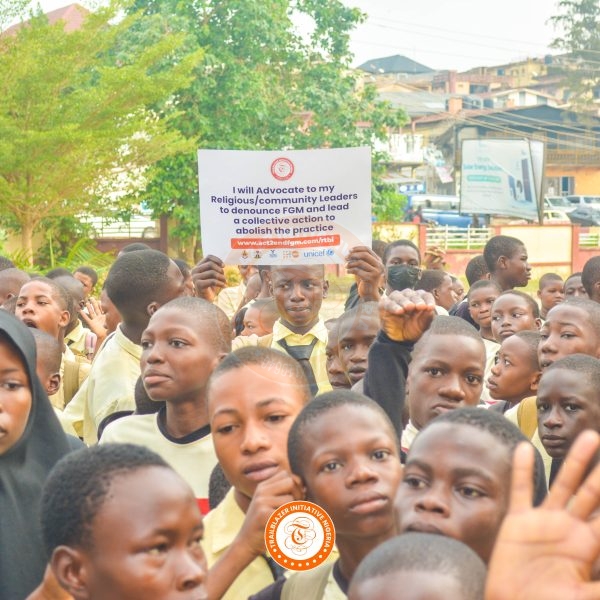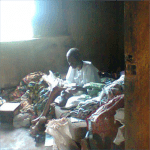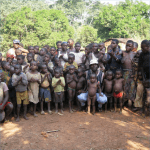A docu-drama not only throws the spotlight on child abuse but also poignantly calls for action against the malaise.
It is not often that children tell their own stories. To a large extent, it is not even expected that children are capable of strong emotions, something erroneously thought to be the preserve of adults. It is perhaps that as a result of this that the malign circumstances under which many children suffer, for no fault of their own, has gone ignored for a long time. Olunranlowo Mi (My Benefactor) a docu-drama, produced by Haven for the Nigerian Child, a not-for-profit organisation that seeks to provide humanitarian assistance to homeless children, attempts to flip this script.
The docu-drama, played out in Yoruba language, is a re-enacment of the real-life accounts of three children suffering from emotional, physical and sexual abuse on the home front. Unable to stomach it any longer, they run away from home and find solace on a public beach where their lives become intertwined. On this said beach, they fall into bad company and on the precipice of self-destruction. They are then rescued, in the nick of time, from the brink, by a charity for less privileged children.
In the first set of scenes, we are introduced to a mother-and-son family who are simply known as Mama Kunle and Kunle, who have no one but each other. Theirs is a pathetic lot. They are dirt-poor. Mama Kunle cannot even afford her son’s school uniform. For this reason, young Kunle is seen, awake at night, in tears because of this. Later, Mama Kunle is seen going to borrow money from a market woman friend. Apparently, she already owes heavy debts. She is shamed and humiliated by her lender who feels affronted by her perceived audacity to come ask for more loans when she has yet many to reconcile. The lender gets riled up and launches into a tirade of cursing. Unsatisfied, as Mama Kunle is yet to shift ground, (she keeps on begging, regardless) she attacks her, pushing her violently to the floor.
Mama Kunle, finally broken, collapses into wailing, derides her sorry situation. At this point, having a handkerchief handy would be wise. Such is Mama Kunle’s terribly pitiful state. While Mama Kunle is on the receiving end of a gale of verbal and physical abuse, the scene switches to Kunle. He is idly roaming around and runs into a pair of street urchins, with whom he is friendly. He is immediately taken with their “affluence”, which appears to be fairly recent, compared to his impoverished state. He asks them how they get by. They promise to show him and ask that he follows them. He does, leaving his mother’s home for good.
The movie then travels to another home. Their lot is vastly different from Mama Kunle’s and her son’s. They seem to be a close-knit, upper middle class nuclear family (father, mother, son, whose name is Habeeb) with the mother heavily pregnant. Fortunes soon change for the worse, for Habeeb, when his mother dies at childbirth and his father marries another wife. We then see the storied, cliché, wicked stepmother angle play out. Soon, Habeeb’s father also dies. Habeeb is now in clear, shooting range of his stepmother’s hate and abuse. He runs away from home. In a jarring scene, where he sits, carefree on the railing of a bridge, perilously close to a painful end, he contemplates suicide. He changes his mind.
We are then introduced to another character, Funke who seems to be in her early 20s. She also lives poor with her father and brother. Her father is an alcoholic and a hard drugs enthusiast, dealing in anything he can wrap in paper and light a fire to. Under the heavy influence of these, he rapes his daughter, Funke. This he does, severally in the presence of Funke’s brother. Funke’s brother soon follows his father’s incestuous example. He also rapes Funke when his father is too stoned to do same. Tired of being defiled by her own flesh and blood, Funke, now predictably, also runs away from home.
The three characters’ paths then cross (they become friends) in the sands of Kuramo Beach where they have each made their new home. Here, they get involved in different demeaning acts to keep body and soul together. Funke becomes a prostitute whose body is sold, for a night, by the beach’s resident pimp. When asked by Habeeb why she does this, shrugging she defends herself. She announces her womb has been ruined by her father and brother and might as well employ her nether passageways for more “useful things”. Kunle becomes an amateur arms trafficker working for local bandits. He is later seen attempting to accelerate upwards this career ladder.
He trains to become a bearer of arms, with the purpose of pillaging and plundering. Habeeb, in comparison to the first two, doesn’t fly too far off the rails. He takes to hawking goods on the street. After some time, a charity for displaced children, financed by an anonymous benefactor, visits Kuramo Beach with the aim of changing the sorry state of Kunle, Habeeb, Funke, other children of their ilk and re-uniting them with their parents. They successfully wean them off their lives on the beach. Years later, they are grown and have become persons of standing in the larger society.
Olunranlowo Mi, though an unfortunate everyday reality, we are used to and more damning, have come to accept in Nigeria, is a riveting watch. Its cast is made up mostly of first-time child actors and they gave a fair account of themselves far exceeding the performance of their adult cast members. The message of the docu-drama is simply told and heart-wrenchingly delivered. There are scenes when Habeeb is being beaten and cursed by his stepmother, Funke being raped by her father and Kunle’s mother in anguish over her lost son that will draw tears. Most endearing is the fact the children told of their own predicament, how it made them feel- pain, suffering and anguish et al.
However, in terms of cinematic quality, it falls far short of an acceptable standard. Some scenes are poorly lighted and edited. The movie’s attempt to capture Lagos in the past and the change in the present by shooting the past in a shade of sepia and the present, in full colour, is a let-down. The sound editing also leaves much to be desired.
Overall, the movie’s demerits take nothing away from its strong message. Children must at all times be fiercely protected, more so, homeless children. It doesn’t do to just look upon their plight with pity and a mere shaking of head. That is not enough.


